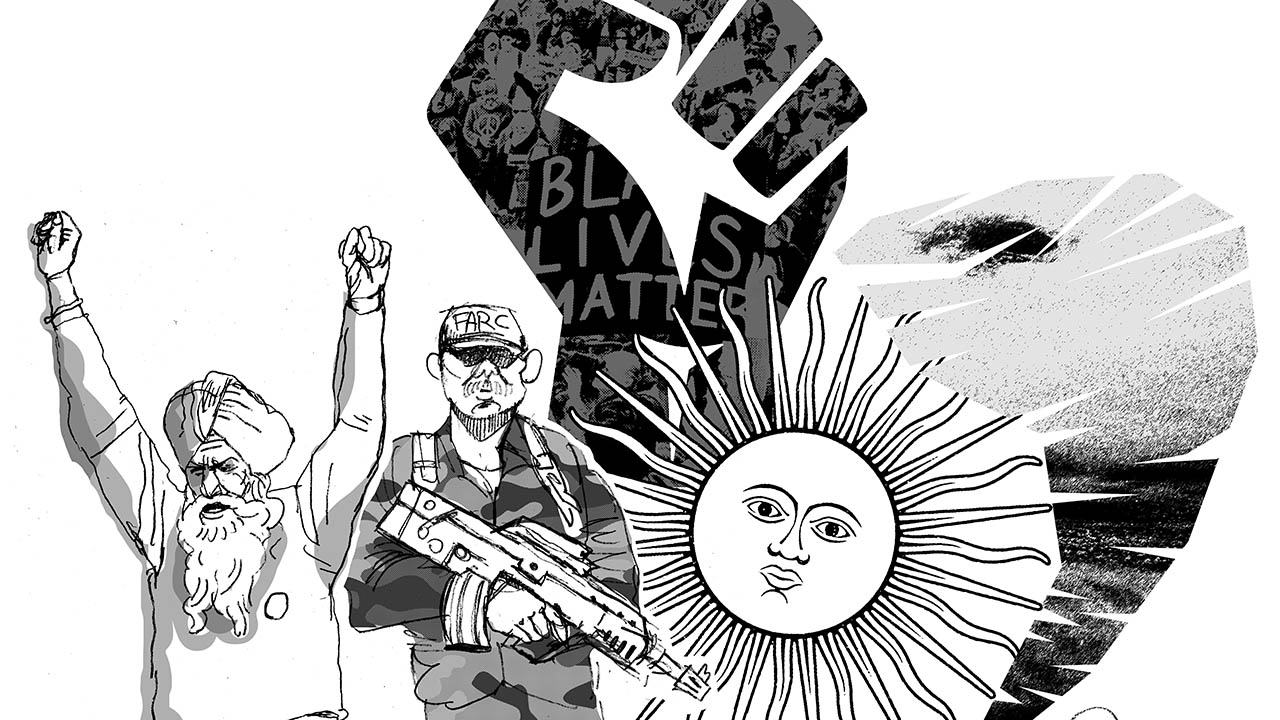Off the Radar: What's going on in the world
 CREDIT: IAN INDIANO
CREDIT: IAN INDIANOThis week on Off the Radar: Black Lives Matter wins human rights prize, new tax on rich people to help the pandemic expenses in Argentina, and more.
To change something, we must understand it first. Therefore, to change society, we must understand it first. We need to notice and find the flaws of a failed system and keep in mind that what we see now, is probably just the tip of the iceberg. Most of the time we are overwhelmed by news (important and unimportant ones) from specific places, losing track of what’s happening outside these poles.
To help you keep track of what’s happening in the rest of the world, here are five news stories you should pay attention to:
Cyclone in Mozambique
Cyclone Eloise affected at least 5,500 families, leaving them homeless and with no access to aid. The cyclone affected particularly Mozambique’s central Manica Province. Because of flooding, the National Institute for Disaster Risk Management and Reduction (INGD) has not been able to reach them. Right now, the only way to provide food and clothing is by air and the INGD is trying to organize a last-minute aerial operation. They are also evaluating the possibility of using tractors to get through the flood waters. Cyclone Eloise destroyed at least 800,00 hectares of crops, and to clean up the waste could take more than 30 days.
India suspended the internet of protesters
The farmer’s protests happening in India, already reported by this column, have a new chapter to their story. Now the Indian government has suspended the mobile Internet services in areas where farmers have been gathering in protest against new agriculture laws. The government says their intention is to “maintain public safety.” After many talks between the protestors and government, no consensus was achieved. The farmer’s union leader Dashan Pal maintains that the movement “was peaceful and will be peaceful.” The protestors are fighting against new laws that loosen rules around pricing sale and storage of farm products.
BLM wins human rights prize
The Black Lives Matter Global Network Foundation won the Olof Palme human rights prize in Sweden. The organizers of the prize, who carry the name of prime minister and human rights advocate Olof Palme, assassinated in 1986, said that the BLM movement was honoured for promoting “peaceful civil disobedience against police brutality and racial violence.” The prize also comes with a donation of $100,000. The movement mobilized millions of people around the world against racial injustice since it was founded in 2013. The Black Lives Matter Foundation is also being nominated for this year’s Nobel Peace Prize.
New tax on rich people helping to fight COVID-19 in Argentina
To help paying for medical expenses and relief business affected by the pandemic, the Argentinian government approved a new one-off tax on the richest people. The tax will affect those with assets of more than 200 million pesos ($2.3m) and the government expect to raise around $3bn. This money will provide unemployment protections for millions of workers and fund scholarships and social aid. The measure is a response to the deep impact of the pandemic on the country, that has deepened the already high rates of poverty and unemployment. The opposition described the measure as “confiscatory” and the Argentine Rural Society fears that tax could be made permanent.
Colombian former rebels charged with war crimes
For more than 50 years Colombia dealt with a violent conflict with the Revolutionary Armed Forces of Colombia (FARC). The guerrilla group’s actions included thousands of kidnappings, torture and murder and resulted in more than 260,000 deaths. They used these activities to fund the war against the Colombian state. The FARC officially ceased to exist after a peace deal with the government in 2016. After the deal some former rebels formed dissident groups that still engage in illegal activities while others founded the political party Common Alternative Revolutionary Force (also FARC in Spanish). Now, eight former FARC commanders are being charged for war crimes, including the Rodrigo Londoño, the head of the FARC party in the Senate. They could face up to 20 years in jail.

















